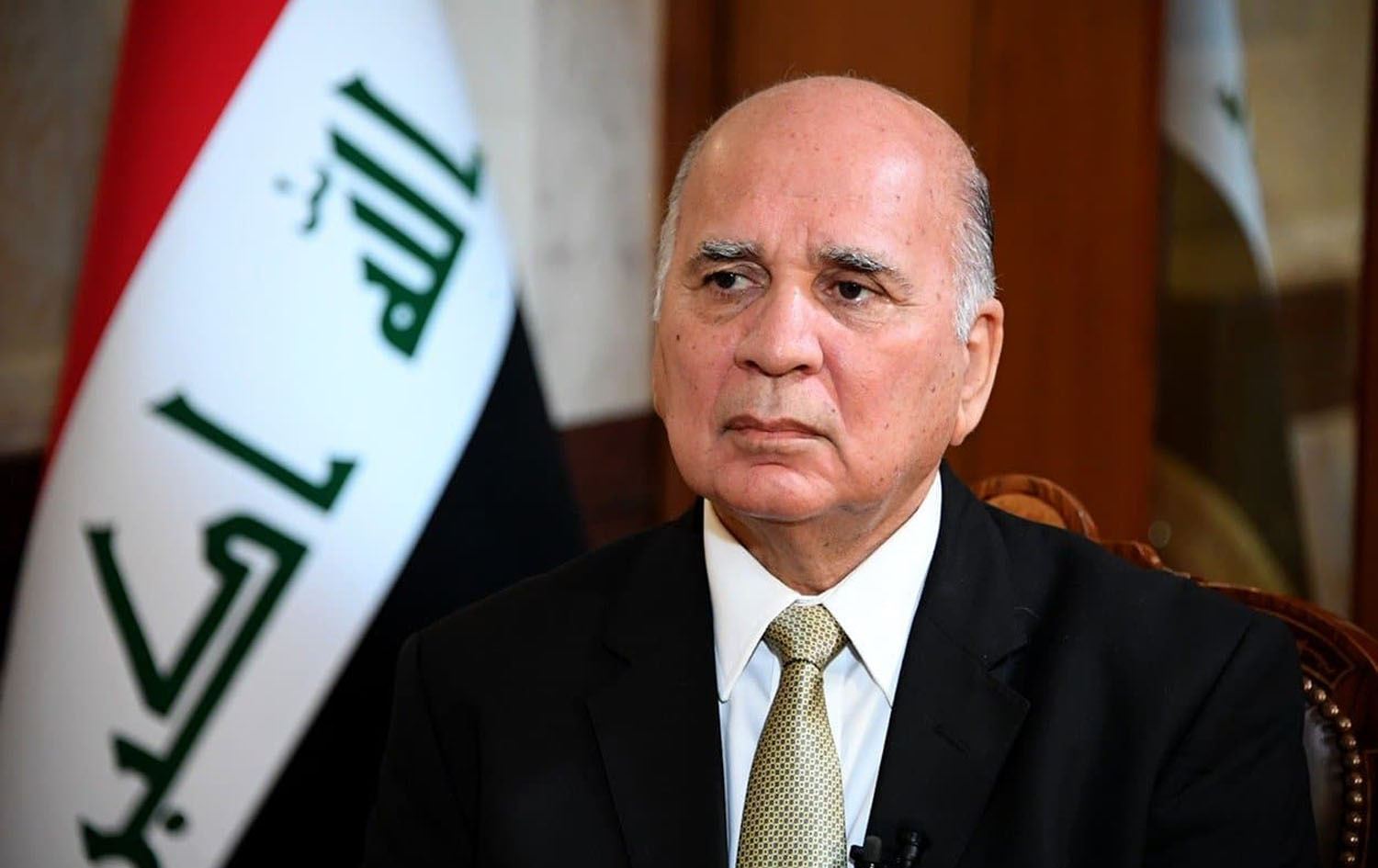With the aim of discussing several issues that Iraq perceives to be of concern to its national security, its foreign minister, Fouad Hussein, visited Tehran on the 13th of April where he met with President Ibrahim Raisi and the Foreign Minister Hossein Amir- Abdollahian. Those traveling with him included the National Security Advisor, Qasim al- Araji, and several security officials. The concerns Iraq wished to address in this visit included:
Escalation between Iran and Israel: Iraq is concerned that continuing escalation between Iran and Israel could impact Iraq, and that the attacks conducted by Iran in the province of Erbil lately are a harbinger of further developments that would represent a direct threat to Iraqi national security. Iraq has suffered from being an arena of confrontation between the US and Iran, especially in the period following the assassination of Qassim Soleimani on Iraqi soil, and Iran’s retaliation through missile attacks on US bases in Iraq.
Threatening Messages from Iran: The visit took place in the context of new escalatory messages from Iran, that have implications for Iraq. Iran on the 11th of April appointed a new ambassador to Iraq, Hussein Al Sadeq, was a former IRGC commander. On the day of the Iraqi delegation’s visit, Iran’s head of land forces in the IRGC Mohamed Bakbour, declared that the death of all American commanders was not enough to revenge Suleimani’s death. This escalatory approach by Iran makes Iraq vulnerable to becoming an arena of confrontation between Iran and both the US and Israel.
Using Iraq as a launching pad for attacks: Iraq wishes to avoid becoming the launching pad of Iranian attacks on neighboring countries, especially members of the GCC , such as the UAE. The attack on the UAE last February was launched from Iraq, as it was claimed by “Alweyat Wa’d Al Haq”, an Iranian affiliated group in Iraq. The launching of attacks from Iraqi soil on neighboring Arab countries threatens the latter’s national security and undermines Iraq’s growing ties with the Arab World, especially with Arab Gulf countries. Iraq therefore has an interest in preventing such actions from pro-Iran militias inside Iraq.
Encouraging Saudi – Iranian dialogue: Iraq has been hosting several rounds of Saudi – Iranian dialogue, as it perceives that playing the role of mediator between the two countries can enhance its relations with all parties in the region and can minimize the impact on Iraq of any future escalation. It is worth noting that the same pro-Iranian militia that took responsibility of launching the attack on the UAE last February from Iraq, also took responsibility for an attack on Saudi Arabia in January 2021.
Furthering efforts to settle the conflict in Yemen: The visit came in the context of a new GCC initiative to end the conflict in Yemen, which resulted in the creation of a new ruling council, and the announcement of a two-month truce sponsored by the UN . Iran welcomed the GCC initiative, which may have encouraged Iraq to lend its support to current efforts, in the hope of augmenting chances of their success. Iraq perceives that a settlement in Yemen would have positive consequences for its own security, as it would aid the success of the Saudi – Iranian dialogue, and reduce tensions between Iran and the GCC, since the former has been accusing GCC countries of trying to increase their own influence inside Iraq, by supporting some Iraqi political factions.
Mediating between the US and Iran: Iraq may wish to play the role of mediator between Iran and the US, or at least the “carrier of messages” between them. This could be important in light of the pause in the Vienna negotiations, which is related to an issue important to Iraq, that is Iran’s demand to have the IRGC removed off the terrorist list issued by the US State Department. The US appears hesitant to agree to this demand, and has apparently sought concessions in return, such as reducing Iranian regional interference and ending the quest for avenging Suleimani’s death. Iraq may perceive that reaching separate agreements regarding these issues could aid its government’s efforts to establish security in Iraq, since US-Iranian confrontations largely take place on Iraqi soil, especially Iranian retaliation for Suleimani’s assassination.
The visit by the Iraqi delegation to Iran might also be tied with Iran’s attempts to gain access to its frozen funds abroad, including in Iraq, who owes it for energy imports. Iran recently announced of the potential lifting of sanctions on approximately 7 billion USD of these funds, to be transferred to the Iranian Central Bank’s branch in the Sultanate of Oman.
In sum, the visit by the Iraqi delegation to Iran appears to indicate that Iraq perceives that whatever the outcome of the Vienna negotiations, escalation in the region is likely to continue, and impact it directly. Escalation between Iran and Israel in particular is likely to continue, with the latter extending its offensive operations from Syria to Iraq, where it could target pro-Iran militias who have threatened to attack Israel and its interests in the region. Such an escalatory trajectory would have devastating consequences for Iraqi stability and security.


